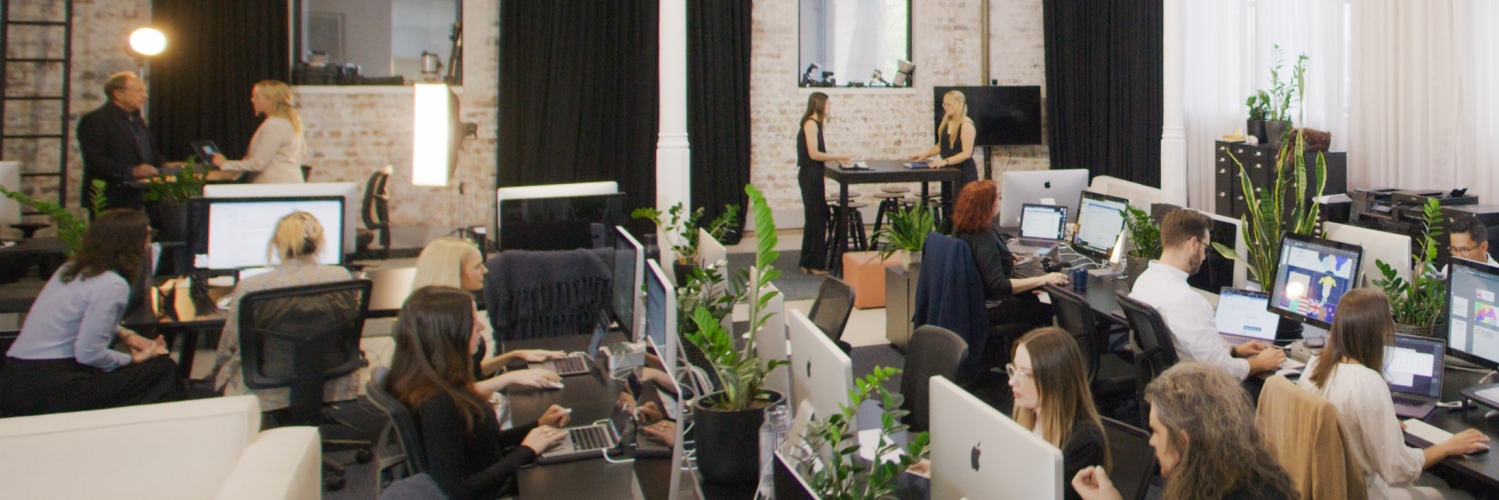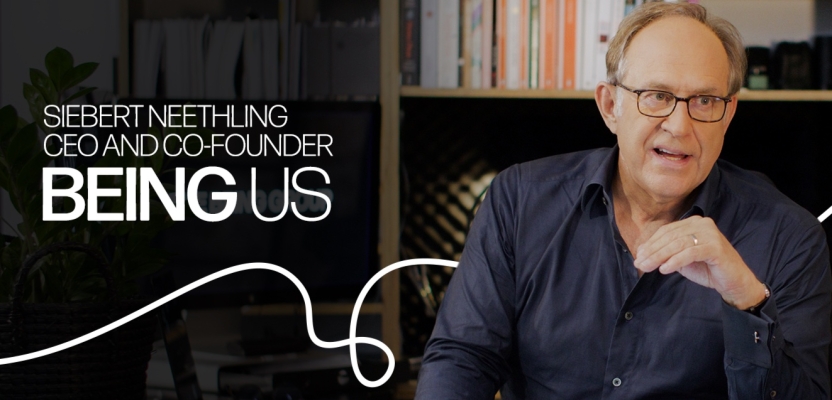Great organisations always have great leaders — but successful leadership requires a rare combination of experience, skills and knowledge.
The Being Group’s CEO and Co-founder, Siebert Neethling, shares how his fascinating background has prepared him for the best job he’s ever had — running The Being Group — and the special joy of seeing people become a better version of themselves.
Sliding doors
My first pivotal career moment was when I was studying psychology and ended up doing a placement in the maximum security ward of a psychiatric hospital. I quickly realised clinical psychology wasn’t for me.
But I was doing sub-majors in literature and philosophy and decided, in my final year, to really take the literature seriously. At the time I said (perhaps flippantly) that: “I learn more about people from Shakespeare than I do from the psychiatric manual.” I think there’s truth in that. That lead me to a post-graduate degree in literature.
What do you do with qualifications in literature, philosophy and psychology? An academic career is the natural path. I got a placement as a junior lecturer and absolutely loved it. I thought I was going to be a lecturer for the rest of my life. But there was a single incident that changed everything.
I love that notion of sliding doors; everything turning on a moment.
At the time in South Africa, there were a lot of children living on the streets — orphans from the AIDS epidemic and other terrible things. One of my students brought in a young girl, maybe 10 years old, who was in a terrible state. I had no idea what to do, so we got out the phone book, as you did then, and found an organisation called Street-Wise.
The woman who founded the organisation lived around the corner. She was there in 10 minutes and took the child in.
I’d always felt I’d missed parts of my youth, because of the two years of compulsory military service I had to serve. So, I travelled to London to try my luck and have some fun, but the money ran out quickly. I didn’t have a work visa, so I borrowed a guitar and ended up supporting myself by busking for about seven months.
When I got back, I got a call from the Street-Wise founder saying: “We need a National Director for our charity. Would you be interested?”
Until that point, I had never thought of leading a charity. But I was interested in the notion of leadership. So, I went from a junior lecturing job to running an organisation with about 50 employees and 250 volunteers.
Two kinds of people in the world
It was perhaps my hardest lesson ever and I was absolutely terrible at it. I don’t think I got the people aspect properly. It’s not about how good you are, or how good a few people are, but that you need to impact at scale — making it possible for people to do their jobs well.
I also had no notion of money. At my first meeting with the Board of Directors I did my report, and the Chairman came and tapped me on the shoulder in the break and said: “Young man, there are two kinds of people in this world. Those who glaze over when they see a balance sheet, and those who don’t.” That was another pivotal moment. I immediately enrolled in managerial finance programs at the university, and it really opened my eyes.
By my late twenties, I’d been in academia, charitable organisations and leadership and management. These things informed everything that came after.
One of our sponsors was South African Breweries (SAB), later one of the world’s biggest brewing companies. I was headhunted to run what we called affirmative procurement — looking at buying from the right communities and putting money back where it was needed most. It was an incredibly political role, and a lot of people didn’t like what we were doing. There were death threats. But I was developing my political and negotiation skills.
Making a big move
From there, I was offered an opportunity to work with the Makana Trust, an organisation that supports ex political prisoners. It owned several social enterprises, including a radio station, which I ended up running. That role married leadership, creativity and business in a unique way. During that time, I met Nelson Mandela, who was a patron of the Trust, which was an amazing experience!
I was thinking about doing my own thing, and finally using my experience and background for myself. So, I set up a small consultancy, aimed at advising companies on strategy and leadership.
By that time, The Being Group’s Principal and Co-founder, Kerry Neethling, and I had started a family and realised quickly that our eldest son, James, was hearing impaired. In South Africa, there was no integrated schooling and James would have ended up going to a school for the deaf. So, we decided to emigrate.
The experience of experience
I was 41 when we came to Australia. I naively thought it would take six months or so to get back on our feet. It actually took 18 years to get back to where we were, in material terms. But, as an experience, every year in Australia has been incredible.
As I was growing my network and client base, I also did a Masters in International Business through Sydney University, with a strong focus on culture in different organisations. That gave me a whole lot of new knowledge and understanding about things I did intuitively.
For me, it’s about the marriage of knowledge, skills and experience.
Experience is obviously a cumulative thing. Every little moment, even busking, taught me something I could apply later on.
Everything I learned and did has prepared me for The Being Group. For me, CEO of The Being Group is the perfect job. If it were advertised, I’d write “I was created for this role” in my application.
As a consultant, I created a list of 50 questions for businesses to answer that reveal how healthy they are. I think The Being Group could answer all 50 in the affirmative, which is quite an extraordinary thing.
Zen and the art of business maintenance
I’m a bit of a socialist at heart. We don’t employ any contractors at all, by choice — which is business madness from one perspective, because if you have a tough few months, you can’t just turn off the contractor tap. But I’m a firm believer in the social contract between an employer and employee. You work for the business, give it your care, attention and best work and the business looks after you, even if it’s not going that well.
We’re very Zen in some ways. I genuinely believe that if we do the right things and do them well, financial success is an inevitable by-product.
We don’t have targets or KPIs — although we do monitor things very carefully. I won’t go to the copy team, for example, and say: “Write faster.” But that’s balanced by almost all of our work being repeat business or referrals. It’s like a growing tree. Every good piece of work generates two or three more jobs.
For me, setting an example, being generous, and sharing the benefits that come out of the company are really important. I think people genuinely appreciate that, and the reward is a very special culture.
The challenge of simultaneity
What makes a great leader? I love the word simultaneity.
For example, if you say you put people first, but don’t look after the business, you’re not really putting people first. I think great leaders are absolutely devoted to people and to business success, at the same time. The best leaders I know understand and nail that.
Leadership brings many challenges, but I think one of the biggest is getting things done and still being strategic. You need to plan for a successful future, deliver for clients, and file your tax returns on time, at the same time. That’s bloody hard to get right, but the best leaders seem to do it effortlessly.
It’s fascinating, it’s a huge challenge, and I don’t think it’s something you ever get 100 percent right. I am unbelievably proud of what we’ve achieved. My biggest, happiest, most emotional moments come when I look at the people who work at The Being Group. When someone becomes better at what they do and perhaps even closer to their better self, that gives me a tremendous kick. I have enabled their personal human endeavour.
That’s my job.
If he wasn’t CEO of The Being Group, Siebert would be a not-that-great actor, a musician, an author, and a painter.



